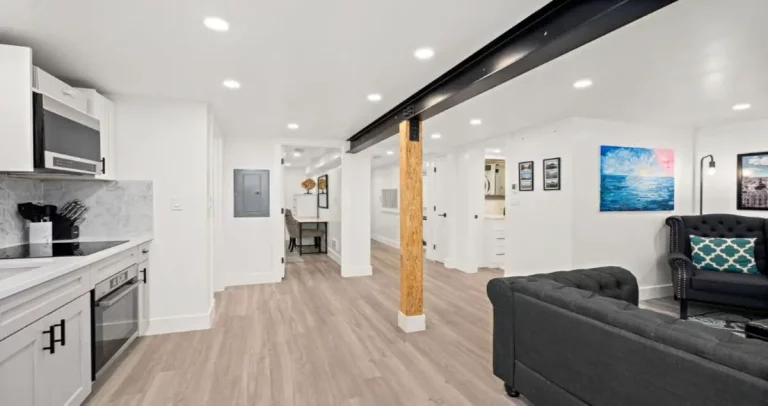In the ever-evolving landscape of real estate, Accessory Dwelling Units (ADUs) have gained immense popularity. Basement apartments are among the most sought-after forms of ADUs due to their potential for rental income and additional living space. However, before diving into the world of basement apartment ADUs, it’s crucial to grasp the intricate web of zoning regulations that govern their construction and use.
What Are Basement Apartments as ADUs?
Basement apartments are self-contained living spaces located within the basement of a primary residence. These units are increasingly utilized as ADUs, offering homeowners an opportunity to maximize the use of their properties while providing renters with affordable housing options.
The Significance of Zoning Regulations
Zoning regulations are the bedrock of land use planning and development. They play a pivotal role in shaping the physical landscape of communities and ensuring that properties are used in ways that align with local priorities and objectives. For those considering the creation of basement apartment ADUs, understanding zoning regulations is not merely advisable; it is essential.
Types of Zoning Regulations
Zoning regulations are diverse and can vary significantly depending on the locality. These regulations are typically categorized into several types, including residential, commercial, and mixed-use zoning. Each type comes with its own set of rules and guidelines that determine what can and cannot be done with a property.
Researching Zoning Regulations
To navigate the complex world of zoning regulations, start by researching your local zoning ordinances and codes. Most municipalities provide public access to these documents, which are typically available online. Additionally, contacting your local planning or zoning department can provide valuable insights and guidance.
Understanding Zoning Codes
Zoning codes are often written in specialized language that can be challenging for the average homeowner to decipher. However, they contain crucial information about what is allowed and prohibited in terms of land use. Pay close attention to definitions, zoning district designations, and any specific provisions related to basement apartment ADUs.
Common Zoning Regulations for Basement Apartments
When it comes to basement apartment ADUs, several common zoning regulations are typically enforced, including:
- Minimum Square Footage Requirements: Zoning regulations may specify a minimum square footage that a basement apartment must meet to be considered habitable.
- Egress Window Requirements: Safety is a top concern, and regulations often mandate the installation of egress windows to ensure a safe means of exit.
- Parking Space Requirements: Some jurisdictions require a designated number of parking spaces for basement apartment tenants.
- Height and Setback Regulations: Zoning codes may dictate the height of structures and their distance from property lines.
- Occupancy Limits: Regulations can limit the number of people who can reside in a basement apartment.
Variations in Zoning Regulations
It’s important to note that zoning regulations can vary significantly from one location to another. Nearby properties and local ordinances can also impact what is allowed. Therefore, it’s essential to consider the specific regulations that apply to your property’s unique location.
Obtaining Zoning Permits
Navigating zoning regulations often involves obtaining the necessary permits. Be prepared to go through the permitting process, which may require submitting detailed plans and specifications for your basement apartment ADU. Compliance with these permits is crucial to ensure your project is legal and safe.
Overcoming Zoning Challenges
In some cases, you may encounter challenges or conflicts with zoning regulations. To address these issues, consider seeking variances or special permits. These can provide flexibility and allow your basement apartment ADU project to move forward.
Working with Zoning Officials
Maintaining open and constructive communication with local zoning officials is key to successfully navigating zoning regulations. They can provide guidance, answer questions, and help you understand the intricacies of the process.
Case Studies and Examples
Real-life case studies and examples can shed light on how others have navigated zoning regulations for basement apartment ADUs successfully. These stories offer insights and inspiration for your own project.
Legal and Financial Implications
Non-compliance with zoning regulations can have legal and financial consequences. Violating zoning codes may result in fines, legal disputes, or the need to demolish non-compliant structures. Understanding the risks is paramount to making informed decisions.
Conclusion
In the realm of real estate and ADU development, knowledge is power. Understanding ADU zoning regulations for a basement apartment is essential for homeowners looking to create valuable living spaces and income opportunities. By researching, adhering to codes, and working closely with local officials, you can embark on your basement apartment ADU journey with confidence and compliance.
Contact our experts today for guidance on navigating zoning regulations and turning your basement apartment ADU vision into reality.







